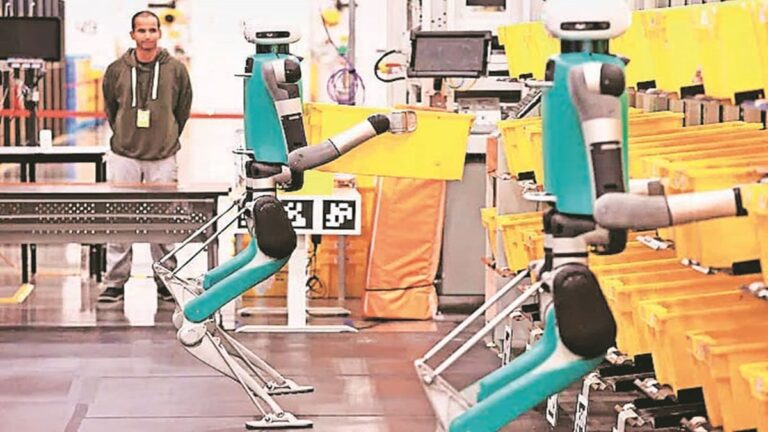The Rise of AIATIC AI: Transforming Industries by 2025
By Uma Ganesh
Introduction to AIATIC AI
As we look ahead to 2025, AIATIC AI is poised to become a significant game changer in the realm of artificial intelligence. Building on the success of autonomous interventions in problem-solving, the next evolutionary phase will involve multiple AI agents collaborating and interacting with each other to tackle complex challenges. This collaborative approach promises enhanced efficiency and efficacy across various sectors.
Applications Across Diverse Industries
Innovative applications of AIATIC AI are already emerging in several key industries including finance, logistics, defense, healthcare, and manufacturing. For instance, Amazon employs swarms of robots in its warehouses to expedite operations. In the defense sector, swarming AI-controlled drones perform surveillance and enhance safety measures. Furthermore, Hindustan Aeronautics is developing the Combat Air Teaming System (CATS) which integrates crewed fighter jets with fleets of drones to mitigate risks for human operators during complex missions.
Advancements in Healthcare and Energy Management
The healthcare industry also stands to benefit greatly from AIATIC AI. Tasks such as cancer diagnosis, drug discovery, clinical trials, and personalized medication can be expedited through AI-driven automation. This technological advancement reduces the time required for molecular analyses, accelerates clinical trials, and improves drug efficacy predictions. In energy management, AI solutions optimize electricity distribution, effectively preventing outages without the need for human intervention.
Challenges of Multi-Agent Collaboration
Despite the promising potential of multi-agent collaboration, challenges remain. Coordination and interaction complexities can lead to conflicting decisions among individual agents. The incidents involving autonomous vehicles highlight concerns regarding the decision-making capabilities of AI agents operating without human oversight. Such events raise questions about the overall effectiveness and safety of autonomous systems.
Ethical Concerns and Responsibility
In financial trading, decentralizing control among multiple agents complicates the process of monitoring for unethical activities. The potential for erroneous diagnostics based on limited data can result in incorrect drug prescriptions by AI agents, complicating ethical responsibility and accountability. Thus, establishing clear guidelines and frameworks for ethical AI deployment is crucial to addressing these concerns.
Investment in AI Development
Notably, developing a multi-agent AI system demands significant investment and computational resources. Ongoing education and transparent communication among agents are essential to mitigate risks and avoid unforeseen challenges. While deploying AI agents in high-volume or volatile environments can yield benefits, it is imperative to exercise caution and avoid scenarios where numerous agents operate without human supervision.
Finding the Balance Between Autonomy and Control
To prevent potential biases in the deployment of AIATIC AI, it is vital to strike a balance between agent autonomy and human control. This necessitates robust verification processes and stringent security measures backed by human oversight at critical decision-making junctures. As AI technology evolves, ensuring responsible AI usage will be fundamental to the successful integration of AIATIC AI across industries.
Conclusion
The potential of AIATIC AI to revolutionize various sectors is substantial. With advancements in collaboration among AI agents, critical challenges must be addressed proactively to ensure ethical, efficient, and safe implementation. The future of AI holds great promise, and with the right balance of innovation and oversight, we can harness it for the greater good.
The writer is president, World Talent Track.
Warning: The views expressed are personal and do not reflect the position or official policy of Financialxpress.com. Reproducing this content without authorization is prohibited.

